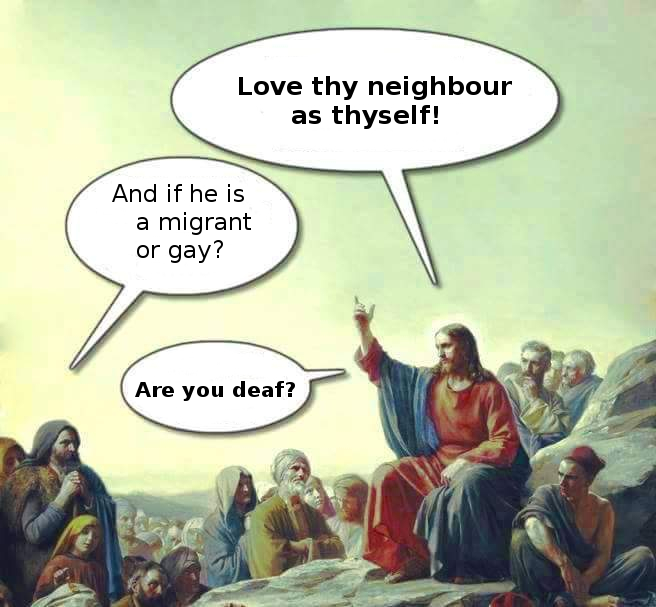Top down – from head to toe
It was the American humorist, writer and lecturer Mark Twain who already recognised: “Repartee is something we think of twenty-four hours too late.”
So it’s not a new phenomenon – and that is at least a little comforting, since a few days ago I had been in a position in which situational quick-wittedness would have been excellent, but alas, the corresponding argumentative clarity lagged behind for a few hours once more…

It was one of these Christmas conversations in leisurely company, with some people you meet rather periodically, who you more likely know by sight – and who probably would have been ranked by a psychologist like Robin Dunbar among the large circle of “acquaintances“.
Accordingly, I was sitting next to my “acquaintance”; she: several years of experience with flat share as well as with some non-monogamous encounters now and then. And thus, at some point our subject turned towards my blog, to Oligoamory – and me.
And whether it was inspired by the mulled wine or not, in the age of social networks it is better to be prepared as a writer for well-meaning comments on your work (which unfortunately too often includes your own person), because thanks to those networks mentioned, the job of a critic has become our second bread and butter every day – and we all are regularly asked to execute it on social media, on internet platforms, on comparison sites and client portals. One should therefore eagerly practice good communication to deal with such (constructive?) criticism properly.
Anyway, my acquaintance said to me: “You know, Oligotropos, I think that your whole Oligoamory is very strange, it somehow doesn’t feel right to me. In my experience it is like this: There you are in a relationship and at some point you discover that there is someone else whom you like and whom you want to love as well. And actually you usually rather try to deal with this topic from that point on and then you start looking for ways of life and love that could possibly realise it. Out of the middle of your life, bottom up. Your Oligoamory, there it seems to me totally wrong, kind of top down. And anyway: I already mentioned that I also think that this whole dating business seems to be totally artificial and rigid. Isn’t it the case that relationships just arise depending on whether people are compatible or not? You, for example, with you oligoamorous quest. In my opinion it always comes across as a little stiff and somewhat anxious – you’re definitely not going with the flow. For me it would be rather awkward to approach things like that…”
WHAM!
Well, I was sitting right next to her – and even if I didn’t manage to be really quick-witted, I was at least able to reply self-honest and by using an I-statement. And I answerd my acquaintance that in my case the Oligoamory was the result of my personal journey through the world of ethical non-monogamy, during which I had already experienced myself and my needs very thoroughly. Accordingly, the Oligoamory would already contain some knowledge regarding the essentials I would need for myself in a relationship – and that it is also important to me to immediately and sincerely inform potential people involved about those essentials(especially because I know, for example, how quickly I can get entangled in desires and projections myself…).
And as far as “dating” was concerned, I answered that if one were to live in a small town in southern Lower Saxony between the Weser and Leine, one would have to put up some effort to get in touch with at least like-minded people anywhere – because of the number of folks who were compatible among less than 1000 local inhabitants with an average age of 60+ would otherwise be rather small…
Be that as it may: even in retrospect I am satisfied with the answers I had given. However, they were not really quick-witted. Because hours later (of course!) I thought: “Now I know what bothered me about that criticism. And I should have answered: ‘I’m sorry – but Oligoamory is not something that you do, but something that you are!’, that’s it.”
At this point I have to go back a little bit, because loyal readers of this blog might know since Entry 1 that one day I was suddenly confronted with the challenges of ethical non-monogamy myself – and originally had no prepared concept to deal with it, too. I must say, however, that I would have realy liked to get hold of at least some kind of handrail that I could have clung to during the weeks and months that followed. And after all, after three quarters of a year, I also received a lucky hint concerning the book “More Than Two – A Practical Guide to Ethical Polyamory” by F. Veaux and E. Rickert, which helped my relationship-network and me to navigate our first shaky steps through a thickening jungle of questions and sensitivities. But by then we had already made a lot of painful mistakes by applying “Try and Error” in DIY mode, which could really have been avoided with a little more “framework” – apart from the fact that one would not have felt so alone regarding the wish for a full-functioning multiple relationship.
Keyword(s) “Wish for multiple relationship(s)”: Many chat forums and groups are constantly debating whether a penchant for multiple relationships is innate or acquired in some people.
I say: I think this highly controversial “Theory of origin” is not very important for our relationships. However, if I look at my own life, then I can certainly refer to an existing history of cute triangular and quadrangular relationship-configurations (especially in transitional situations). These proto-multiple relationships did not have long periods of existence at their time – but nevertheless, if I dare to look honestly at the circumstances, they clearly bear witness to the fact that I have a certain preference (or tendency) towards non-monogamous constellations – and that not since yesterday. Whether it is “innate” or “acquired”, it is definitely a topic that can be found regularly as a trace in my life: So yes, that’s somethink I actually AM, it’s a trait, a feature, it is a factor that is immanent to my thinking and acting. Of course, in my mid-twenties it wouldn’t have been something I could have grasped clearly as “oligoamorous”. But if I had known certain philosophies of ethical non-monogamy, that have been circulating in queer, alternative or neopagan circles for quite some time by then, I would have certainly embraced at least the term “polyamorous” much earlier.
Because in that regard I don’t think that multiple relationships are something that “just happens” to you. And many people from the queer spectrum would possibly agree with me that if you feel a certain inclination, a certain longing, sooner or later the day will come when an inner attitude can no longer be suppressed, but will somehow find a way to manifest, a way “out”. Exactly then – that’s what I would wish for – it would be colossally helpful if there were any form of orientation, choice, or support to be able to identify or at least name these personal affinities or attitudes.
Concerning Oligoamory, I’m challenged to provide exactly this – and to introduce a colourful menu item among many that presents an idea, an orientation, so that it can serve other people as a possible reference point for their own relationship philosophy and their way of life.
If I’m hence able to help by outlining a “way of life” an “Ars vivendi” (art of living) top down and head to toe: With pleasure – and that’s what Oligoamory is all about! The alternative would be a tangle of misleading approximations, with a considerable lack of terms to describe and contextualise yourself, and of those there are too many of them out there in my eyes already.
Well. The only thing left for me to do today is to formulate the quick-witted answer regarding the dating criticism. And I admit that I had to think about that one for quite a while.
Until I realised what my acquaintance had actually announced to me in her rewiew in a roundabout way: a surprisingly stereotypical heteronormative narrative.
Because, strictly speaking, she had expressed two things: On the one hand, that “real/true” relationships can only ever be found and formed through an elusive, romantically transfigured component – and, on the other hand, that only (monogamous) singles posses the proper “authorisation” for dating. Anyone else – who would not benefit from being either single/solitary while initiating a relationship or predestinated by romantically transfigured circumstances – would have to sit and wait selflessly according to this model – since any proactive behaviour would be rather artificial and “somewhat anxious”.
Indeed, this is quite a bludgeon for any queer and non-monogamous lifestyle – and by the way, also one with an ugly nail hidden in it. Because, similar to the once derogatory word “gay“, the reproach towards dating folk is that we would otherwise have to be horny or needy if we were not able to wait for the cosmic coincidence of a romantic chance encounter.
I’ve always had my difficulties with the meek saying “Happiness comes to those who can wait”, because it could also end with “…and if not, it wasn’t meant to be.” – and with such a fatalistic attitude we will neither be able to transform a society nor to save the environment. What such an attitude wants to maintain such is a subdued an fearful posture that I criticised in my last Entry, a posture which will exactly prevent us from flying our flag and from having the courage ” to be someone”.
And although I will probably never be a real fan of (online) dating as a highly sensitive person, I still consider it a valid contemporary tool, especially since I am a staunch advocate of conscious and free will. If (hopefully!) honest, informed and responsible people meet during such an “artificially” created date, then they will probably be able to decide on their own whether they perceive each other as compatible, whether there is “more” between them – or not. And that doesn’t require higher powers, no submission to fate – and just a little bit of romance at best.
Alright. That might have been quick-witted – although I assume that the conversation, which I was able to finish in peace, could otherwise have taken an even more combative turn. And since the English aphorist and essayist Charles Caleb Colton also explained “Repartee is perfect when it effects its purpose with a double edge. It is the highest order of wit, as it indicates the coolest yet quickest exercise of genius, at a moment when the passions are roused.”, I would rather share my late findings here with you today, my loyal readers, and wish you a wonderful, brilliant, courageous – and quick-witted – 2020!
Thanks to TessaMannonen on Pixabay for the photo.










